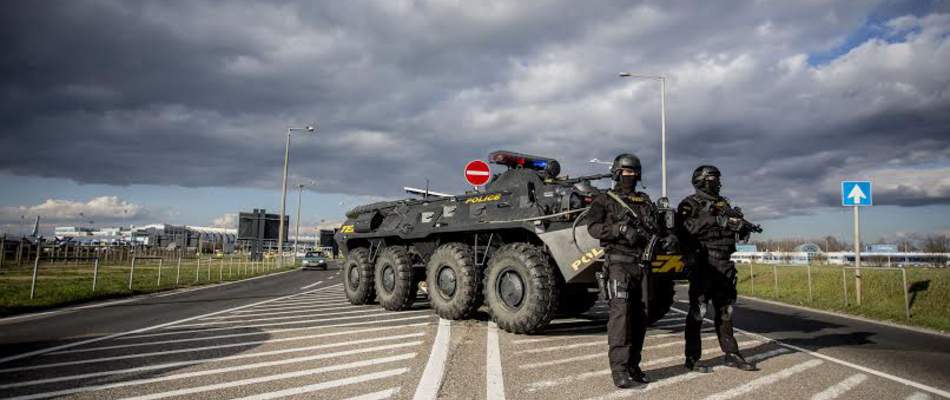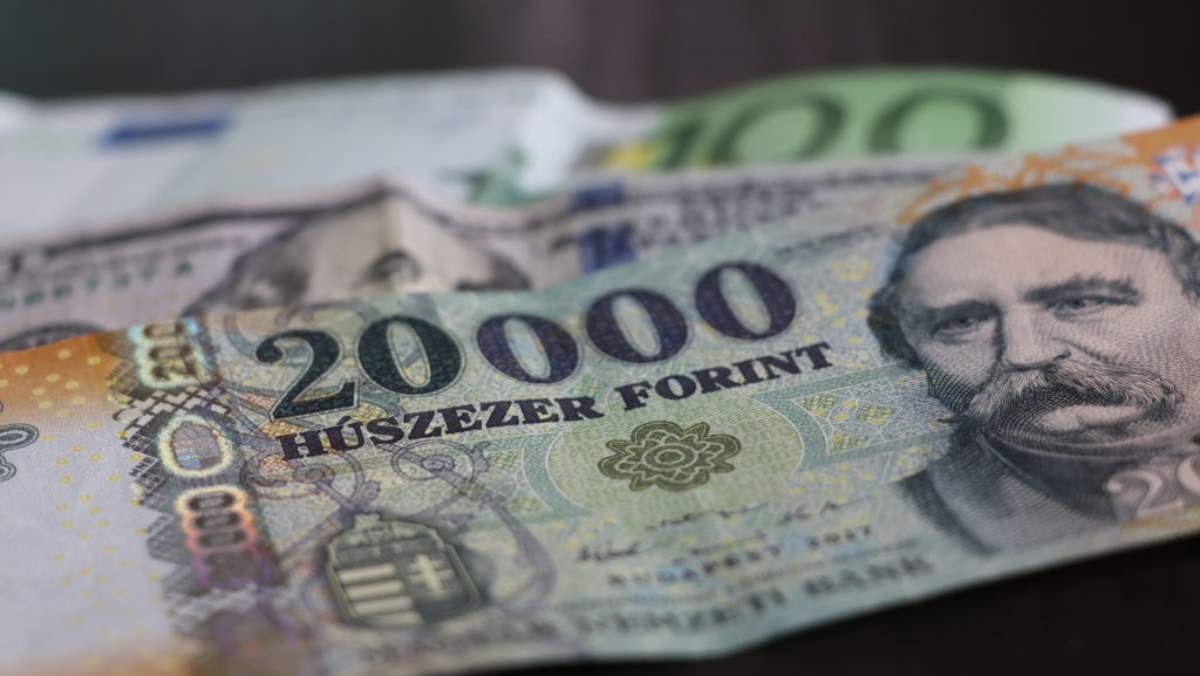US research institute calls this recent Hungarian measure the worst possible
The Russian-Ukrainian war has already taken a serious toll on the economies and supply chains of many countries over the world. It is projected that approximately 40 million people could become deeply impoverished as a direct consequence of the military conflict in Ukraine.
Index published the findings of Center for Global Development (CGD), an American research institute that approximated that some 40 million people could become deeply impoverished following the war.
The institute expects a steep rise in energy and food prices, calling out Hungary’s governmental measure as the worst a country can do.
We previously wrote about the hardships of local agricultural workers who face difficulties procuring fuel in Hungary. These issues can further deteriorate the country’s situation. If you would like to know more, visit the following link:
Hungarian agriculture on the brink of collapse due to fuel shortage?
CGD said that due to the war, a drastic and long-term increase in food and energy prices may occur which will show resemblance to the 2007 and 2010 events when 44 million people became deeply impoverished.
In connection to the spiking food prices, the research institute called on the current Hungarian measure of banning export on grain at the beginning of March as an example.
“The reflex-like response of Hungary banning exports is a typical example of what not to do. Luckily, their decision will not affect the global supply chain too severely, however, politicians and decision-makers must not give in and should maintain openness,” – CGD said.
Another research conducted in Hungary shows that many people are already below the EU average when it comes to access to meat, fish or equivalent plant-based products. You can read about the country’s “food poverty” in greater detail in the following article:
Shocking! So many Hungarians can’t afford meat and fish
According to Index, the research institute compared the current Hungarian measures on wheat export ban to the ban on rice export in India and China back in 2007, which caused a global increase in rice prices.
“It is important that major food-producing countries other than Ukraine, maintain an open trade,” – the American research institute said.
Center for Global Development recommended a few solutions which can be implemented by political leaders and decision-makers, but they have highlighted that
sanctions against Russia must not include food products and fertilizers.
The research institute once again reiterated that export bans pose a threat and added that prices can increase even with open trade, and many countries might need new resources to meet demand.

Read alsoCan it go even further? Hungarian rental market to experience price explosion!
Source: Index.hu, Daily News Hungary
please make a donation here
Hot news
Highly-skilled Hungarian workforce fleeing the country – cause for concern?
Orbán cabinet wants to enhance cooperation between the EU and Central America
PM Orbán: “we are fighting against the Soros empire”
Budapest’s popular new museum: The Collector’s House!
Hungary to enter into alliance with Panama against emergence of blocs in the world, says Foreign minister Szijjártó
PACE: ‘CoE ignores own principle in connection with Kosovo’s membership’, says Hungarian politican




9 Comments
The figure of 40 million people becoming ‘deeply impoverished’ (presumably a quote from somewhere) is really just the tip of the iceberg.
“The United Nations has warned that Russia’s invasion of Ukraine could trigger global famine ….Russia and Ukraine’s combined wheat exports are crucial to a number of countries, including Egypt, Turkey, Bangladesh and Iran, who get 60% of their grain imports from the two countries, according to the UN.” Guardian
In the worst case scenario in which not only are supplies of grain greatly reduced but also that such supplies that are available are hoarded by wealthier nations or trading blocks, mass starvation could affect well over 100 million people.
It does not matter what Hungary does or decides to do, it gets vilified by American media. This time it was US Research Institute. It does not give a background of the Institute, are they studying sexual preferences of eagle? They do not sound credible. The bottom line is Hungary should not export food that will be needed by the people of Hungary. The Ukrainian Russian war is an American proxi war, let the US supply food for those that used Ukrainian grain.
3rd April 2022 – National Elections in Hungary.
This article, contains a degree of FACT, the position, we as a country find ourselves in, a position, with an Economy – under the present Government in Power – the course & direction, they have placed us in, by Policies, that have been under attack, by the opposition, and “others” – that bears witness, as a country – we are in Serious Trouble.
The Government of Hungary did not know the arrival of a Novel Virus in February 2020 nor the conflict of war, that at present, challenges not just Hungary and Europe but the Global World.
The concerning FACT – is the continual declining position that the Hungarian Government through its attitude of conflict and arguement – disagreement – has pursued with the European Union.
Brussels – has a MASSIVE microscope and members & individuals – who have Long memories.
Hungary – its “image” in NATO. – is vunerable through attitudinal illregularities – to agree and “Toe the Line ” – with the Policies – agreed by the vastness of other member countries.
Hungary – is isolated in its POSITION – with the European Union & NATO.
In addition to the EU & NATO memberships at present that Hungary hold, the “Growing” rapidness in trading and “other” relationships – that under the present Government of Hungary – led by its Prime Minister – Victor Orban, is placed with Russia & China – is not looked favourable by ALL other Major countries of Europe nor the wider Global World.
Hungary – through its PURSUE under Policies arising from its present Government, is in a WEDGED position – and this is Not – being viewed with any favours by Major countries – the EU & NATO at this time.
April 3rd – the opportunity for the citizens of Hungary – to cast there vote, under Democracy – who they believe – is best equippted – to Govern Hungary – into the Future.
Post 1989 – this for the FUTURE of Hungary – without doubt the – greatest challenge to citizens – deciding & casting there vote – for what party – style of Politics – they DECIDE – to be the Government of Hungary.
Robert. H. Jackson said – in one of his famous quotes – he was Chief Council for the United States of America – Nuremberg Trials in 1946 :
“It is Not the Function of Government to Keep the Citizens – from FALLING into Error.
It is the Function of the Citizens – to Keep the Government – from Falling into Error “.
Hungary – has an Opportunity and April 3rd – Let Right be Done.
The background of the Institute can easily be looked up even by people in Canada – MVT.
Prime minister Orbán Viktor is the worst minister Hungary has ever had. He and his friends got off rich the Hungarian people
He has stolen the peoples’ money and Eu funds and gave it to non Hungarians to get their votes. He is an inconsiderate and cruel thief deserving life sentence imprisonment.
@Albert Ferenc
Couldn’t have put it better myself. Wholeheartedly agree with your comment.
When leaders in central Europe are criticized it is always “he stole people’s money”. The country has laws. If it is true, then, President Orban should be taken to court. So far that has not happened.
Prime Minister Orban is the first politician of the country that put the people of the country first. He is the first man that was willing to stand up for sovereignty against Brussels’ dictatorship and globalists. He is the first person that uses referendums to consult the people for subjects that occur after election. It seems that a populous FIDESZ government has done well for the country. This should be celebrated.
No critic could name any Hungarian prime minister that has been better for the country.
Have you seen the referendum MVT? He knows which answers the people will choose, which of course will be nearly 100% No. The questions are pathetic. Give the population a group to fear. He’s counting on our ignorance and then he can present this nonsense to Brussels. Putin should be taken to court for committing war crimes, do you think that will happen too?! He doesn’t even recognise the ICC. Wake up. The only thing Orban is interested in is himself, are you really so naïve.
Where were these brilliant folks when UKraine was being used as a cash machine for for left wing including the the president of the US and his family and then we can include the Clinton’s and the Obamas along with many other NGOs including Soros. Ukraine is a victim of these very corrupt organizations and now they want drag Hungary along. I moved here just before the revolt and little knowledge of how the EU operates with little power compared to the US but just as dumb if not worse than the US.T